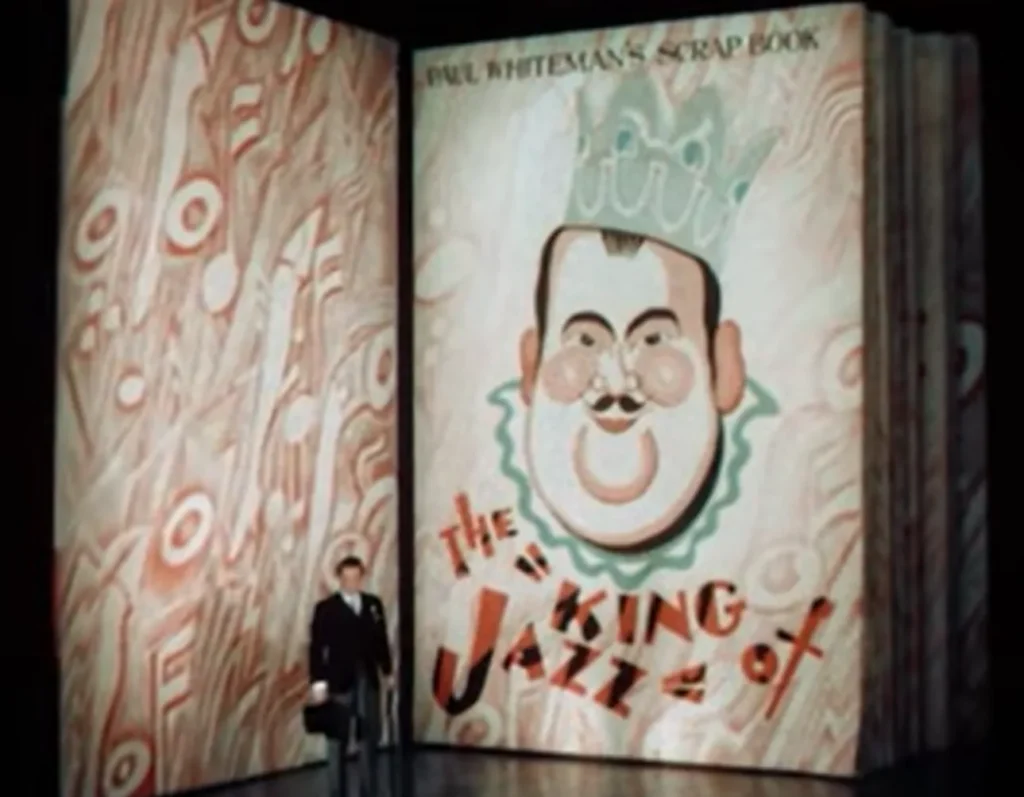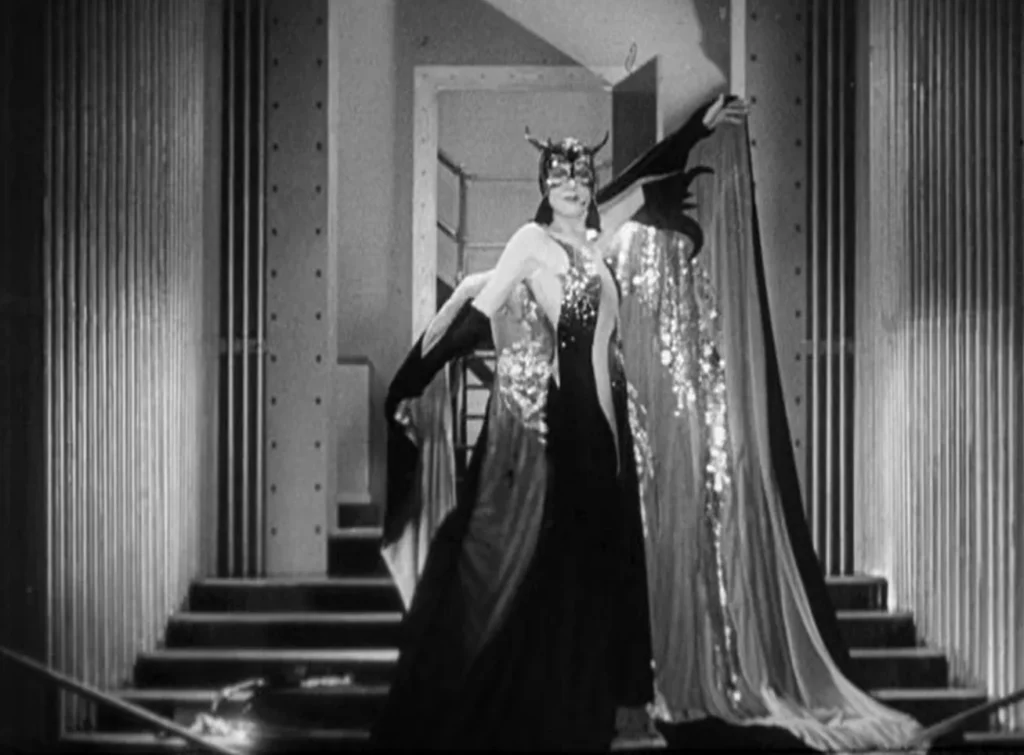Posts filed under “Popular Entertainment”
CELEBRATING THE PUBLIC DOMAIN.

This is good news, as it is every January 1, but it cannot be allowed to pass without a brief fit of grumpiness. Ninety-five years is an absurd length of time for copyright to persist. And remember that this is a temporary arrangement. Eventually our copyright laws will be brought in line with those in Europe and most of the rest of the world, where copyright lasts for seventy years after the death of the author.
The purpose of copyright (and patents) is defined quite specifically in the United States Constitution: “To promote the Progress of Science and useful Arts, by securing for limited Times to Authors and Inventors the exclusive Right to their respective Writings and Discoveries.” The goal is to promote science and art for the benefit of everyone. Therefore, authors and inventors should be able to earn a living from their hard work, because otherwise there would be no authors and inventors, and we could not have the benefit of their work.
But that is not the purpose of copyright that persists decades, or not infrequently more than a century, after the original publication. The plain purpose of such monstrous extensions of copyright is to create an intellectual-property aristocracy who live on the creations of dead artists and inventors, and whose distinguishing mark is that they never produce anything of benefit to society themselves.
Now, we know this is not unconstitutional, because the Supreme Court has ruled that no extension of the “limited Times” is unconstitutional as long as there is in fact a theoretical limit to the time. The decision is in line with the general tendency of the court to regard everything in the Constitution as meaningless blather unless it propounds a specific rule. But if it is not unconstitutional, it is at least obviously a development that would cause either laughter or tears to issue from the original authors of the Constitution. They stuck that explanatory phrase in there for a reason; they could just have said “Congress shall have the power to secure for limited times…” without any preface.
Enough of the sour persimmons. Dr. Boli will say only that twenty-eight years is enough time for any copyright to endure. If an author has not made money from his creation in that time, he never will. If he has made a lot of money, he needs no more; he should sit down and write something else that people like and earn our gratitude as well as our dollars.
With that out of the way, we can proceed to our celebration of what has finally entered the public domain in the United States. Dr. Boli will have more delights to point out soon, but for today he would like to introduce you to three motion pictures that have entered the public domain, because they are like nothing you will see in our own time, and—unless you have seen these particular movies—like nothing you have ever seen in your life. They are all available for download or streaming right now, free forever, unless Congress decides to revise the copyright law again and take them out of the public domain, which also is not unconstitutional and has been done before.

1. King of Jazz. This was perhaps the biggest and brightest of the musical revues that flooded out of Hollywood when sound was new. Nothing like them has been made since then, because a few of them were enormous hits, but by the time this one came out the public had tired of them, and this was one of several expensive revues that flopped. So you have probably never seen anything like it. And you may never have heard anything like it, either, if you are not familiar with Paul Whiteman’s music. Is it jazz? There’s a good way to start an argument. But stick to the question of whether Whiteman had talented musicians playing good arrangements, and the argument disappears. You get music of all sorts, dancing, comedy blackouts, and everything else you would expect from a stage revue. If you don’t like one number, you’re bound to like the next one. And as a bonus, you get the first color animated cartoon, made by Walter Lantz, who would later be famous as the creator of Woody Woodpecker.
There’s one way in which the movie is oddly like movies we do see today. It comes from the first great age of orange and teal. It was made in two-strip Technicolor, whose red and green dyes were pretty good at producing natural-looking flesh tones, but could not render blue, violet, or yellow. Today the fashion for orange and teal has passed into cinematic dogma, so once again we are seeing movies in what is effectively two-strip Technicolor, though we go through the silly intermediate stage of filming them in natural color and then running them through color-denaturing software.
King of Jazz in an excellent print at Wikimedia Commons.

2. Madam Satan. When we hear the name “Cecil B. DeMille,” we think of Biblical epics; but he made his name with bedroom farces, and in between he made pirate adventures and westerns and war movies. In the entire list of his movies, though, there is nothing quite like this: a musical-comedy bedroom-farce disaster movie. It has some surprisingly sophisticated dialogue and some hot musical numbers, and it ends with a thrilling wreck of a dirigible. Dr. Boli will add that, if you ever have a chance to see it on the big screen, you should jump at the opportunity. As for the performances, two stand out: Lillian Roth is surprisingly funny and believable as the Other Woman, and Roland Young is Roland Young. You will not be bored.
Madam Satan in a very good print at Wikimedia Commons.

3. Just Imagine. If you have ever wondered why there aren’t more science-fiction musicals, the answer is because this movie was made—a musical about the unbelievable futuristic world of 1980, where numbers take the place of names and aerial traffic cops direct busy streams of flying machines, and—most relevant to the plot—eugenics is the dogma of the land. We will not pretend that it is a great movie. It was written by DeSylva, Brown, and Henderson; and if you are saying to yourself that you thought they were songwriters, you are correct. They are completely out of their depth in trying to build a plot that will carry a movie; and by the time we get to Mars and discover that every Martian has an evil twin, we have probably given up all hope of plot. Finally, the running time includes far too much of El Brendel, the unfunniest comedian in the movies, yet inexplicably the most popular comedian of 1930. We should point out that Charlie Chaplin was alive; Buster Keaton was alive; Harold Lloyd was alive. All four Marx Brothers were alive (Animal Crackers just entered the public domain yesterday, too), and even Zeppo could squeeze more laughs out of the word “Yeah” than El Brendel could wheeze into a whole movie.
But the effects are amazing. This is a movie that can stand with Metropolis and Things to Come in its miniature effects. Though the movie itself was a flop, some of the effects were recycled in Universal serials for years to come, and the Mars spaceship was sold secondhand to Dr. Zarkov of the Flash Gordon serials. This is another movie that ought to be seen on the big screen. We also might add that nineteen-year-old love interest Maureen O’Sullivan can really act, and it is much to her credit that her reputation survived this film.
Just Imagine in a fairly good print at the Internet Archive.
COOKING FOR ONE.
Anyway, first of all, I don’t want to make it sound like I don’t take any of the blame for yesterday’s events. I’m a mature adult, and I can admit that I should have been more careful. I thought I was buying a turkey baster, but it is completely true that the box said “Turkey Blaster,” and I should have been more careful when I read the packaging. I also ought to have paid attention to the directions when they said “stand at least 20 feet from turkey,” but I honestly thought “feet” was a mistake for “inches” there.
But I really have to ask whether people should even be selling things like that. I mean, you guys saw what came out of that thing. It was like flames from here to the county line.
In fact, I consulted with an expert, namely my neighbor Skip, who served in the Gulf War in some capacity, I think maybe catering, and Skip is prepared to swear on a stack of Uniform Commercial Codes that this item was actually a military-surplus flamethrower inexpertly relabeled for consumer use. So, yeah, you gotta be careful what you order on Amazon these days, but, criminy, guys, who expects a turkey baster to go all apocalyptic on you?
Anyway, that’s life, and what’s done is done, and all that, and I guess I’m sleeping on the couch till Georgina gets over this in February or March.
So once again, I’d like to apologize to all my friends and neighbors, and especially to the Grant Borough Fire Department. Obviously I didn’t mean to burn down the firehall, but we live and learn, and the best we can do is try to figure out what we did wrong and, you know, not do it quite so hard the next time.
So, once again, this is Al, saying what Herb always says, which is, Remember, cooking is for guys, too. And if you see a fireman standing at the intersection of Main and Everett, maybe put something in the boot.
TONIGHT ON DUMONT.
The Alan Sundry Show. Special guest Mary Ellen Sheets, co-founder of the Two Men and a Truck franchised moving company, recalls the many failed business formulas that preceded her runaway success, including Two Trucks and a Man; Five Girls, One Raccoon, and a Harmonium; Ten Lords a-Leaping; Two Beagles and Eight Hundred Fleas; A Studebaker Lark with Nobody in It at All; and One Middle-Aged Mom Selling Franchises. 9 p.m. (8 Central, 10:23 Newfoundland).
THE BLONDE AND THE FECKLESS.
Announcer. And now Brenneman’s Whole-Body Soap, the soap that replaces sixteen different anatomically specific soaps, presents…
(Music: Tinkly piano introduction.)
Announcer. Episode four hundred twenty-eight thousand two hundred thirty-six of The Blonde and the Feckless, created by Eusebius of Caesarea.
(Music: Theme: tinkly piano on a pillow of strings, fades under for…)
Announcer. As you recall, in yesterday’s episode, Emerson and Eleutheria were sitting at the bar in the Hard Luck Inn when Eleutheria said…
Eleutheria. I can take care of myself, you know. You’re not my dad. Or my mom. Or my Aunt Winifred. Or my second cousin once removed who lives in a trailer park in Clearwater. I’m an adult now. If I want to get drunk, I can get drunk. If I want to marry a ninety-four-year-old Russian nobleman who can’t put on his own socks, I can do that, and no one can stop me.
Emerson. I’m not trying to be your dad, and I wouldn’t know how to be your second cousin once removed. I’m just your friend. But remember that time you told me you’d always trust my judgment?
Eleutheria. You mean the time I ran into you in Genoa while you were on the trail of the jewel thieves who stole your identity and framed you for jaywalking and racked up a twenty-thousand-dollar Candy Crush Saga bill and you rescued me from drowning in the fountain after pirates had drugged me and dropped me from the mezzanine level of the Teatro delle Zucchine?
Emerson. Well, I guess you said it then, too, but I was thinking of the time I found you alone and scared in a vintage hat shop in Kinshasa and we had to disguise ourselves as Jehovah’s Witnesses to get past the perfume counter in the department store on the way out of the mall. You told me you would always trust my judgment, and I said I would try to make my judgment worthy of your trust. So…
Eleutheria. So what are you trying to say?
Emerson. I guess what I’m saying is, we’ve been sitting on these barstools having this conversation for five and a half weeks now, while the other characters’ plots have been advancing all around us, so I guess it’s time for me to ask the question I’ve been wanting to ask this whole time.
Eleutheria. It’s over there down the hall next to the kitchen.
Emerson. No, that’s— Well, yeah, I am going to want to use it in just a minute. But what I want to ask is, why are you really marrying the Count? Is it just to get back at Ethan for dumping you after you put a dent in his 1974 Monte Carlo while you were being chased by Peruvian alpaca kingpins in Kuala Lumpur?
Eleutheria. Well, what if it is? I can do what I want. Anyway, there’s more to it than that. Maybe I like older men.
Emerson. What I really mean to say, Eleutheria, is… Why are you marrying the Count when you could have me?
Eleutheria. Oh, Emerson! That’s so sweet! And I do really like you. So call me when you get a private jet and a superyacht and a dacha that covers an entire autonomous oblast, and we’ll talk.
Emerson. Well, I didn’t want to do this, but I guess it’s time to tell you what I found out about the Count.
Eleutheria. What do you mean?
Emerson. He didn’t really make his fortune in the organic-puffed-wheat business, you know. His company sold breakfast cereals to children with bright artificial colors and preservatives you can’t even pronounce.
Eleutheria. Well, even artificially colored children have to eat.
Emerson. I mean the cereals were artificially colored, not the children.
Eleutheria. You’re a liar! Alexei would never do that! I can’t believe you’d try to ruin my wedding with such utter codswallop! I never want to speak to you again!
(Sound: Splash, loud footsteps, slamming door.)
Emerson. Why, Eleutheria, you threw your drink in my face! And it made a sound like a bowling ball hitting a swimming pool, because that was all the effects guy could come up with! And then you stomped out and slammed the door! And now I’m sitting here alone and wet and talking to myself, because the bartender went home four and a half weeks ago!
Announcer. Will Emerson ever recover from the heartbreak of Bloody Mary stains all over his immaculately pressed white jacket? Tune in tomorrow for the next installing enthrallment of The Blonde and the Feckless!
(Music: Theme, in and under for…)
Announcer. Friends, are you tired of juggling sixteen different specialized soaps for different body parts every time you go into the shower? It’s more than inconvenient—it’s dangerous. Many injurious bathtub falls are related to mishandled soaps. Try Brenneman’s Whole-Body Soap, the soap that works on more than just your hands. It’s the only soap you need! Well, that and your shampoo. And conditioner. And a body rub for afterward. All from Brenneman’s of course. Brenneman’s Whole-Body Soap—the soap that replaces sixteen other anatomically specific soaps! Ask your druggist if he carries Brenneman’s products and beat him senseless if he doesn’t.
(Music: In full, then out.)
IN MUSIC NEWS.
WHAT’S HOT—WHAT’S NOT.
Not hot at all—Egg prices! They’re going down again! Now what will we complain about to get likes on social media? This is Joe Biden’s fault.
Lukewarm—Poetry. Sure, some people like it, but a lot of it is, like, really boring.
On the fence—Chain link: useful divider or public eyesore? We can’t decide!
Pretty hot—Plaid! Everything looks good in plaid!
Totally hot—Pottery kilns! It’s like a furnace in there!
MODEST STEIN AND THE KEYSTONE COPS.
Illustration by Modest Stein of a scene from The Auctioneer, a silent-film adaptation of the play by Charles Klein and Lee Arthur. From an advertisement for the film in Motion Picture News, May 8, 1926.
It turns out that Stein was momentarily quite famous under another name way back in 1892. He was part of the trio of Emma Goldman, Alexander Berkman, and Modest Aronstam who plotted to assassinate Henry Frick in 1892. He got away with his part in the conspiracy, changed his last name, and prospered. (And, to be fair, it’s hard to say whether trying to assassinate Frick should earn you a jail term or a government pension.)
Now, isn’t it a shame that the age of two-reel silent comedies is over? We can imagine how Mack Sennett would have taken this hint from Stein’s Wikipedia article and turned it into a perfect scenario.
On his way to blow up Frick’s house with pockets full of dynamite, Stein—then still called Aronstam—saw a newspaper with a headline warning against “Aaron Stamm” as a Berkman conspirator. He became frightened, dumped the explosives in an outhouse, and returned to New York.
That is how Wikipedia tells the story. But in the Mack Sennett version, the big gag comes when the cop who’s been chasing him for the past reel and a half decides he has to go to the outhouse and takes his cigar with him.


